Graham Reid | | 4 min read
Look Back in Anger (1979)
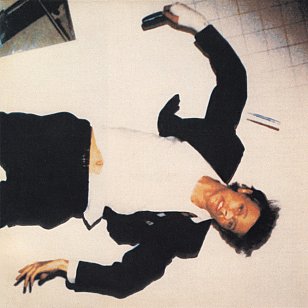
Although accepted as the final installment of David Bowie's “Berlin Trilogy” which started with Low and "Heroes", the Lodger album – released 40 years ago in May 1979 – never felt, or even looked, part of the set.
Where the covers of its predecessors offered a more muted experience – on Low we see Bowie in profile, kind of low profile as it were – on Lodger he is lying dramatically on a sterile bathroom floor with his limbs seemingly broken, like some raggedy-Anne doll bent into a vague allusion to, or a parody of, a cracked swastika.
It is an image designed to engender a sharp intake of breath for its cruelty.
And musically Lodger had little of the gloom and grandeur of Low and "Heroes". It's release was also belated – after "Heroes" came the live Stage collection before Lodger – and it wasn't even recorded in Berlin, it was done in Montreux, Switzerland and finished off in New York.
 (Although to be fair, parts of Low were recorded in France at the famous “honky chateau” d'Herouville).
(Although to be fair, parts of Low were recorded in France at the famous “honky chateau” d'Herouville).
It sprung the great single Boys Keep Swinging (coincidentally released just after a public punch-up with Lou Reed) which was, ironically, overrun in the UK by Gary Numan's Are 'Friends' Electric? which topped the charts for a month. Numan performed it live on Top of the Pops the same night as Bowie's grim gender-bending promo video for Boys Keep Swinging – and his song owed a considerable debt to Bowie's dispassionate delivery and synth-pop.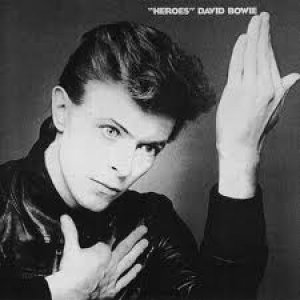
Lodger is however considered highly influential for its musical directness which belies the complexity of its production.
It didn't sell as well as his previous albums and the critical jury at the time was – and still is – very divided. To some it was a work of considerable courage and to others an incoherent collection. As John Robinson in Uncut noted in 2017 when it appeared in the massive 13 LP box set A New Career in a New Town, it was “an album with a strange running order (it is counter-intuitively backloaded with the singles) [Boys Keep Swinging and DJ on the second side], the combination of prolixity and rhythmic-busy-ness can make it easy to miss the tunes, wonderfully operatic performances and the slightly batty humour (“The hinterland! The hinterland!” [on Red Sails]) that can ultimately be found there”.
All true, and it is a series of songs which have been constructed out of sometimes available material.
 Band members swapped instruments for Boys Keep Swinging (guitarist Carlos Alomar on drums, drummer Dennis Davis on bass), Bowie and co-producer/sometime co-writer Brian Eno would gather the band around and point to chords written on a board, some songs were written to old backing tracks or songs played backwards (Move On is All the Young Dudes reversed), Yassassin is a kind of experimental Turkish reggae (Bowie had lived in the Turkish quarter of Berlin for a while, hence his fascination with the sound) and Fantastic Voyage has the same chord changes as Boys Keep Swinging . . . But it is reinvented by the setting.
Band members swapped instruments for Boys Keep Swinging (guitarist Carlos Alomar on drums, drummer Dennis Davis on bass), Bowie and co-producer/sometime co-writer Brian Eno would gather the band around and point to chords written on a board, some songs were written to old backing tracks or songs played backwards (Move On is All the Young Dudes reversed), Yassassin is a kind of experimental Turkish reggae (Bowie had lived in the Turkish quarter of Berlin for a while, hence his fascination with the sound) and Fantastic Voyage has the same chord changes as Boys Keep Swinging . . . But it is reinvented by the setting.
Red Money, the final song, is actually parlayed over the music Bowie and Alomar wrote for Iggy Pop's Sister Midnight.
Much of this randomness or experimentalism was inspired by Eno's Oblique Strategies cards drawn at random and used as a series of instructions (something like rolling dice to determine your course of action). In its production and odd ethno-forgeries – creating fake ethnic sounds as he had done on "Heroes", here on songs like African Night Flight, Move On and Yassassin on the first side – Lodger anticipated Eno's work with David Byrne on My Life in the Bush of Ghosts released a couple of years later.
There is prepared piano on African Night Flight which has Bowie spitting out the lyrics, horns, violin, guitarist Adrian Belew who had been on the Stage tour, and most significantly Bowie's longtime friend and producer Tony Visconti who managed to shape the music and the album from such dispirit material and the slowly fraying Bowie-Eno collaboration.
Despite all that, Bowie was also clearly returning to more pop structures although his lyrics were as challenging as ever. Yet he had moved on so fast in these few years that the hit single Fame seemed in his distant past, but had been released just 18 months before Low.
It is an album which is all over the place, musically, lyrically and even geographically.
Bowie sometimes said it was the result of his infatuation with travel: he'd lived in the UK, US, France and Germany in quick succession.
There are lyrical and musical references to the wider world – African Night Flight which takes inspiration from a trip to Kenya and white pilots with a strange view of Africa but wanting to get back there – and they are stacked on the first side which opens, appropriately enough, with Fantastic Voyage.
On the second side he adopts a skewed view of more domestic and gender issues in DJ (“one more weekend of lights and evening faces . . . I am a DJ, I am what I play”), Look Back in Anger which was a Noel Gallagher favourite (“no one seemed to hear him so he leafed through a magazine”), Boys Keep Swinging (“when you're a boy other boys check you out, you get a girl, these are your favourite things”) and Red Money (“can you feel it in the way that a man is not a man?”).
Taken as a whole, Lodger was perhaps the most experimental and demanding of the “Berlin trilogy” (and that's saying something given the bleak sonic landscapes of Low).
It wasn't an album many returned to because 18 months later – after the subsequent Ashes to Ashes hit came his Scary Monsters (and Super Creep) album – and simultaneously released hit single Fashion – which put him back in the mainframe.
Four decades on however David Bowie's Lodger – the bastard child of that so-called trilogy – remains a remarkable album, and Tony Visconti's remastered version (available on Spotify) brings out even more of those nuances which lurk behind the hammers of confusion.
There is a considerable amount about David Bowie at Elsewhere including a couple of interviews, starting here.
Elsewhere occasionally revisits albums -- classics sometimes, but more often oddities or overlooked albums by major artists -- and you can find a number of them starting here
And here is a new and very different version of Look Back in Anger, the posted track, recorded in 1988 with guitar by Reeves Gabriel of Bowie's Tin Machine project.

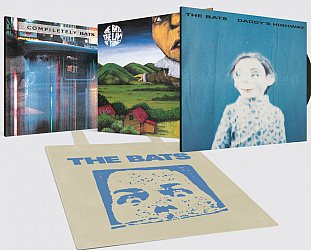
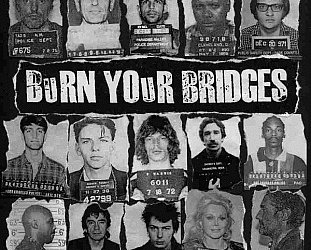

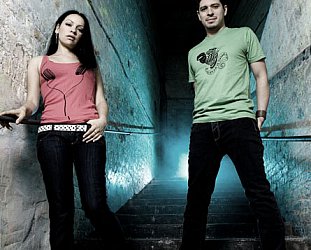


post a comment